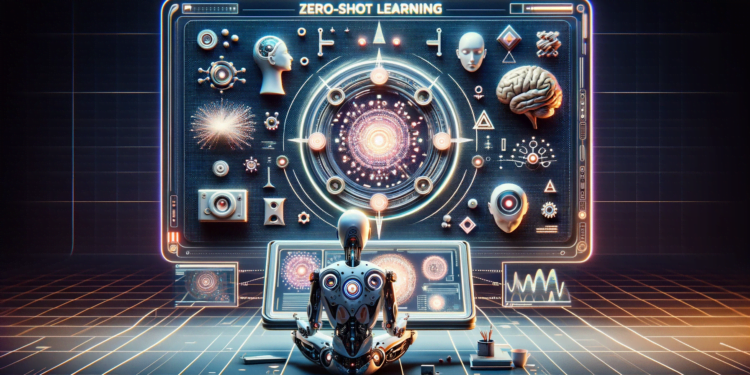The advancement of artificial intelligence is unlocking capabilities that until recently were exclusive to the domain of humans. One such emerging ability is Zero-Shot Learning (ZSL), a technique enabling machines to recognize objects, concepts, or entities without having seen them during their training. This skill marks a milestone in AI, and its practical applications are so vast that they promise to be revolutionary, gradually and substantially shifting current paradigms.
A Glimpse into the Fundamentals of Zero-Shot Learning
Conventional machine learning requires a massive amount of labeled data for a model to learn and make accurate predictions. However, Zero-Shot Learning seeks to circumvent this hurdle using abstract representations and meta-knowledge. The core idea is that through prior knowledge and high-level descriptions, an AI system can generalize and identify new objects or categories that were not previously seen during its training.
Technical Advances and Innovation Perspectives
The most recent research focuses on improving the semantic attributes and the feature space in which ZSL operates. The integration of deep neural networks, particularly Generative Adversarial Networks (GANs), into the Zero-Shot Learning ecosystem, has provided substantial improvements in the accuracy of model predictions.
On a technical level, the development of ZSL algorithms involves a detailed understanding of knowledge transfer and semantics. Current methods utilize embedding spaces to represent information in a way that can be easily compared or related to the new knowledge that must be acquired.
Immediate Impact on the Industry
The implications of implementing ZSL in the industry are wide-ranging. For computer vision, it could mean the identification of rare species without the need for large datasets of labeled images. In the field of natural language processing, ZSL empowers models to understand and respond to requests or commands they have never been trained to recognize.
Analysis of Real-World Cases
A relevant case study would be the one implemented by recommendation systems on streaming platforms or eCommerce. ZSL allows for the effective introduction of new products or content, which yet does not have a user interaction history, into recommendations. Thus, personalization and content discovery become more sophisticated and enriching for the user experience.
Social Perspectives and Challenges
From a social standpoint, Zero-Shot Learning has the potential to make AI technology more inclusive by allowing systems to learn and recognize languages or dialects without the need for bulky and costly labeled data, which often is not available for less-spoken languages. Moreover, the ability of AI to adapt and recognize new concepts more fluidly could accelerate the development of more versatile and accessible virtual assistants for a broader range of users.
Expert Opinions
Leaders in AI research highlight Zero-Shot Learning as a step closer to general artificial intelligence systems. However, they recognize that the main challenge lies in the quality and relevance of prior knowledge provided to the model for learning and inference.
Future Directions of Research and Development
Looking ahead, ZSL research will likely explore more sophisticated methods for dealing with ambiguity and generalization across various taxonomies and ontologies. Exploring how unsupervised learning can facilitate more robust Zero-Shot Learning is also an area of burgeoning interest.
Additionally, the potential to combine Zero-Shot Learning with meta-learning techniques, where models can learn to perform tasks they have never seen, opens up possibilities for the development of self-taught systems capable of adapting to changing demands with little or no human intervention.
Conclusions
Zero-Shot Learning remains an area of great promise and active research within the field of artificial intelligence. The growth of this learning paradigm seems poised to cross the threshold from pure research to real-world and globally impactful applications, redefining the limits of what machines can learn and how they can interact with the world and us.
In summary, the horizon for Zero-Shot Learning is full of possibilities that could transform the way we understand, develop, and apply AI technology. As such, it is expected to be one of the key drivers in the next revolution of artificial intelligence.






















